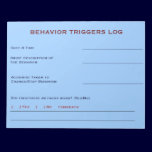Personal finance is a broad, complex, and ever-changing field, yet just about anyone can call themselves a financial advisor. The advisor you choose must be competent, well-informed, and experienced in the areas of investment management and financial counseling. She need not be an expert in every area, but she should know when she is in an area where more expertise is needed, and have the ability to work with experts to get you the correct advice.
Experience and knowledge are only useful if they are applied for your relative's benefit. The advisor you and your senior choose should have integrity, a commitment to ethical behavior, and high professional standards. You want an advisor who will put your needs and interests first. Fee-only registered investment advisors are "fiduciaries", which by definition means they are required to put their clients' interests first.
It's Personal
Working with a financial advisor is a very personal relationship. Communication, rapport and trust are keys to success for your family member, and for you if you will also be interacting with the advisor. Choose someone with whom you and your relative feel comfortable. The more the advisor knows about your relative's financial situation and goals, the better she will be served. If you or your relative feels uncomfortable, you may not give your advisor as much information as is needed to properly advise you on your situation.
Your feeling of comfort with an advisor and the communication between your relative and the advisor may be two different things. Communication is always a two-way street, but it's the advisor's job to facilitate the communication. A good financial advisor should:
- Ask the right questions. For every important answer, there is a correct question to be asked. A good advisor knows how and when to ask the important questions that draw you and your relative out so that they have all the information they need.
- Pay attention and act on what your family member says. A financial advisor should always listen to what your family member has to say, respect their chosen degree of risks and objectives, and tailor their recommendations to suit them.
- Treat them with courtesy and respect If you feel as though they are not being treated with courtesy and respect, find someone else.
- Explain things until your family member understands them. A good financial advisor will provide you with information and take as much time as necessary to explain a proposed transaction and make sure you understand exactly what is going to happen.
Disclosure- The heart of any working relationship with a financial advisor is trust. Trust is built on two factors: the advisor acting in your relative's best interests, and full disclosure of his or her background, business practices and other issues. Full disclosure means the advisor is forthright in providing answers about the advisor's work experience, compensation, methods of planning and also any disciplinary actions that may have been taken against him by various government regulatory agencies and professional associations. Request a written disclosure document from the advisor. This will either be what's called a Form ADV or an equivalent brochure. This should answer many of your questions. You may then want to follow up with a personal interview, which many advisors will do for free. Some of the basic information you want to know:
- Financial designations and/or licenses the advisor holds. The Certified Financial Planner (CFP) designation is a widely accepted mark of education and ethical standards.
- Educational background and work experience.
- Services the advisor provides, areas of specialization, types of clients the advisor serves, and any minimum net worth or income requirements.
- The advisor's approach to financial planning, and how your relative's particular needs will be addressed.
- Whether the advisor or others will implement recommendations from the plan.
- Business relationships the advisor has that might present a conflict of interest.
- How the advisor is paid for services and the typical charges.
How do Financial Advisors Charge?
Financial advisors can be paid in a variety of ways for their work. Some are paid by more than one method. Before your relative enters into a relationship with an advisor, you and your relative should have a clear understanding of how he or she will be compensated.
There are several commonly accepted methods of compensation:
- Fee-only. The advisor is compensated entirely from fees for consultation, plan development or investment management. These fees may be charged on an hourly or project basis, or as a percentage of assets under management.
- Commission-only. Compensation is received solely from the sale of financial products you agree to purchase in order to implement investment recommendations.
- Combination Fee/Commission. A fee is charged for consultation, advice and financial plan preparation on an hourly, project or percentage basis. In addition, the advisor may receive commissions from the sale of recommended products used to implement your plan.
- Fee-offset. Commissions from the sale of financial products are offset against fees charged for the planning process.
Starting the Search for a Financial Advisor
Here are some ways to start your search:
- Ask for names from friends or business associates who may have used a financial advisor. Attorneys, accountants, insurance agents, bankers and other financial specialists also can be good sources because advisors often work with them to carry out a client's plan.
- The Financial Planning Association (FPA) maintains a thorough database of Certified Financial Planner (CFP) professionals that can be searched by geographical area. Visit http://www.plannersearch.org/or call 1-800-647-6340. FPA also has useful tools and checklists to help you learn about the financial planning process and choosing the right advisor. http://www.fpanet.org/
- Check with the Securities Exchange Commission (SEC) http://www.sec.gov/, appropriate state agencies, your local Better Business Bureau, and the CFP Board at http://www.cfp.net/or 888.CFP.MARK to determine if any complaints have been filed against the planner you are considering.
- The website of the National Association of Personal Financial Advisors (NAPFA) http://www.napfa.org/has several resources to help you learn about the financial planning process, investments, and selecting a financial advisor. One resource is a questionnaire that you can use as you interview your next advisor.
_______________________________________

































































No comments:
Post a Comment